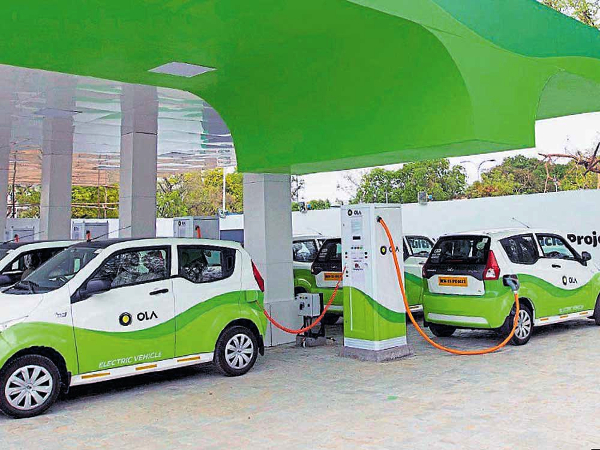Should India achieve its 2030 electric vehicle ambition and targets, it would present a market opportunity worth nearly $206 billion (Rs 14,42,000 crore) in the course of this decade, says an independent study released today by the CEEW Centre for Energy Finance (CEEW-CEF). The study also estimates a cumulative investment need of over $180 billion (Rs 12,50,000 crore) in vehicle production and charging infrastructure until 2030 to meet India’s EV ambition.
While India is yet to officially spell out its electrification targets for 2030, the aspiration as stipulated by NITI Aayog-government’s primary think tank, states that 70 per cent of all commercial cars, 30 per cent of private cars, 40 per cent of buses, and 80 per cent of two-wheeler (2W) and three-wheeler (3W) sales would be electric by the end of this new decade.
As a result, the CEEW-CEF study says cumulative EV sales in all vehicle segments would jump to over 100 million units by FY30 – 200 times its current market size of just half a million as on March 2020.
“Availability and affordability of capital for OEMs, battery manufacturers, charge point operators, and end consumers would be key to determining the pace, efficiency and cost of India’s transition to electric vehicles,” says Vaibhav Pratap Singh, Senior Analyst at CEEW-CEF and the lead author of the report. “Consistent policy support would also be critical. The recent announcements by the government to set up EV kiosks across 69,000 petrol stations in the country and permit sales and registration of EVs without batteries can give a boost to the sector.”
The study estimates that realising this ambition would require an estimated annual battery capacity of 158 GWh by FY30, which provides a massive market opportunity for domestic manufacturers. Even if 50 per cent of the battery manufacturing capacity were indigenous, investments would amount to as much as $6.1 billion (Rs 42,900 crore) by FY30. Further, the cumulative investments required would exceed $12.3 billion (Rs 85,900 crore) in case of 100 per cent indigenisation of battery manufacturing. The recently approved production-linked incentive (PLI) scheme for the automobile and battery manufacturing sectors could help enable the right ecosystem for indigenisation and job creation in the EV sector.
Another big opportunity would be in the area of charging infrastructure. India would need a network of over 2.9 million public charging points by FY30, beyond the in-home charging points, says the study. This would require investment of up to $ 2.9 billion (~ Rs 20,600 crore) until 2030. Currently, there are only about 1,800 public charging points across the country.
Similar opportunities exist in the automobile loan market too. According to the study, if 50 per cent of the EV upfront costs – $103 billion (Rs 7,21,000 crore) – required through FY21-FY30 were to be financed through debt, the banking sector would have to more than triple its current advances of $31 billion (Rs 2,17,000 crore) towards vehicle loans in the next 10 years. The study highlights that distributing all the upfront costs as well as operating costs (including fuel, maintenance, and insurance) into equal annual costs – a method called annualization – would help navigate the challenge of high upfront purchase cost. The solution could help create a track record of performance and repayments and thus help with the creation of a vibrant loan market for EVs.
In addition, it recommends development of policies around battery reuse, recycling, and leasing to help bring down the high upfront cost of EVs. To encourage uptake of EVs, it calls for creating state EV policies which combine incentives for EVs with disincentives for internal combustion engine (ICE) vehicles.
Source: BT
You may also like
-
Trade Connect E-platform For Exports Is Single Window, Fast, Accessible And Transformational: Shri Piyush Goyal
-
Dot Simplifies Approval Processes For Telecom Licenses And Wireless Equipment
-
Coal Production and Supply Trends on Positive Trajectory
-
Union Minister To Release Booklets On Promotion Of Indigenous Species & Conservation Of States Fishes
-
2nd India-Japan Finance Dialogue held in Tokyo on 6th September, 2024
